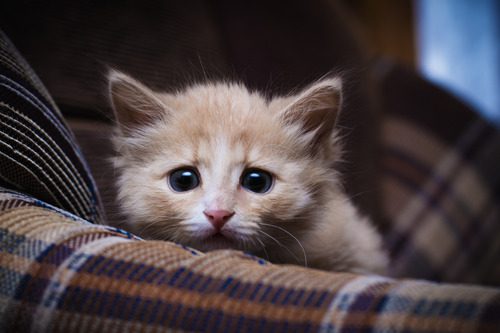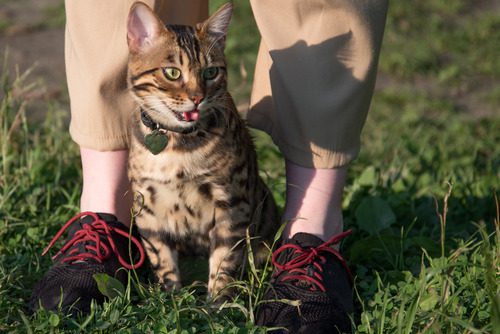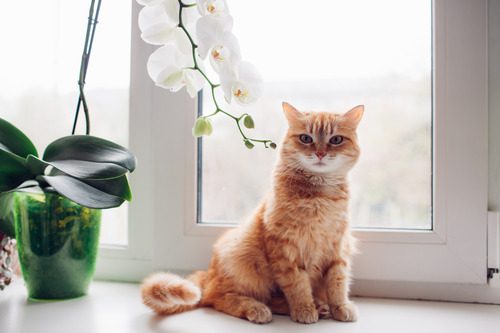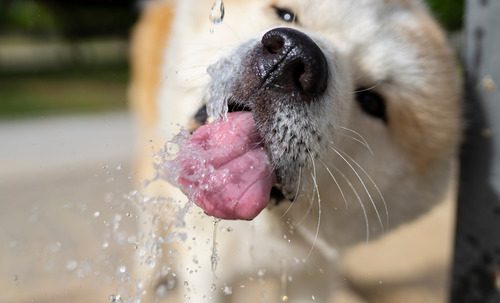Why is My Cat Not Eating?
If you’re noticing your cat isn’t eating as usual, you’re right to be concerned. This blog will shed some light on the possible reasons your cat may have lost their appetite, and we encourage you to seek expert advice for your pet’s health. If you have pressing questions and need to see a vet, please reach out to your nearest Heart + Paw facility right away.
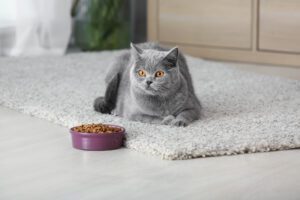
Appetite Loss in Cats
Cats can stop eating for a wide variety of reasons. They are known for their particular eating habits, but a noticeable decrease in appetite shouldn’t be overlooked.
Common Reasons for Decreased Appetite
- Health Issues: Various medical conditions, from dental problems to more serious ailments like kidney disease or diabetes, can lead to appetite loss in cats.
- Environmental Changes: Cats are sensitive to changes in their environment. Moving to a new home, changes in the household, or even introducing a new pet can affect their eating habits.
- Food-related Factors: Sometimes, it’s as simple as not liking their food. Changing your cat’s diet or food brand can lead to them not eating.
When It’s a Problem
If your cat skips a meal but seems otherwise fine, then you probably don’t need to worry. However, if your cat hasn’t eaten in 24 hours or shows other worrying signs like lethargy or vomiting, it’s time to call your veterinarian.
The Impact of Stress and Anxiety on Eating
Stress and anxiety can significantly affect your cat’s appetite. Cats are creatures of habit, and any disruption in their routine can lead to stress, which in turn can cause a loss of appetite.
Identifying Stress in Cats
- Behavioral Changes: Look for changes in their behavior, like hiding more often or increased aggression.
- Physical Signs: Over-grooming or changes in litter box habits can be indicators of stress.
Creating a Stress-Free Environment
Ensuring your cat has a peaceful and comfortable environment can help. Consistent routines, quiet spaces, and familiar objects can all contribute to reducing your cat’s stress levels.
Medical Conditions That Can Affect Appetite
Several health issues can lead to your cat not eating. It’s essential to be aware of these conditions and seek veterinary help as soon as possible.
Common Health Concerns
- Dental Problems: Pain from dental issues such as dental disease or tooth resorption can make eating uncomfortable for your cat.
- Digestive Issues: Problems like constipation or gastrointestinal upset can affect their appetite.
- Serious Illnesses: Conditions like kidney disease, hyperthyroidism, cancer, urinary infections, or diabetes can cause a decrease in appetite.
Changes in Diet and Preferences
Cats can be picky eaters, and sometimes a change in their food preference or dietary needs can lead to them not eating. It’s important to remember that as your cat gets older, their nutritional needs will inevitably change. Transitioning to a new diet, even if it is intended to improve their health, can take time. The process of changing your cat’s diet should be gradual. We recommend mixing a small portion of new food into your cat’s current food and increasing that portion slowly over time.
When to Talk to Your Vet
If your cat’s appetite loss persists, consult with your vet immediately. Our team will work to get to the bottom of your pet’s issue and formulate a tailored treatment plan to help. Before your visit, keep a record of any behavior or appetite changes you see at home. Be prepared to discuss your cat’s diet and any recent changes in their environment that may be contributing to their issue.
At Heart + Paw, we stand ready to assist you with all your cat’s needs. If you’re concerned about your cat’s eating habits, a visit to your nearest Heart + Paw can provide you with a solution and peace of mind. Your cat’s health is in good hands!
Recent Posts
Signs Your Cat Could Have Anxiety
When you think of anxiety, you might not immediately associate it with cats. However, our feline friends…
Is My Pet Alright? When Cat Panting Requires a Vet Visit
Caring for our cats means paying attention to all the little details that make them unique. One…
7 Plants Toxic to Cats that Could be in Your Home or Garden
Creating a safe and inviting space for our beloved cats often involves more than just providing them…
Dog Tooth Abscesses: Signs, Causes, Treatment and Prevention
When it comes to keeping your dog happy and healthy, oral health plays a significant role that…
Why Is My Dog Always Thirsty and Drinking a Lot of Water?
If you’ve noticed your dog lapping up more water than usual, you might be wondering if it’s…
About Us
Heart + Paw was founded in 2018 by Chief Veterinary Officer Dr. George Melillo, who currently serves the Mid-Atlantic area. Heart + Paw offers a combination of veterinary care, pet grooming, and dog daycare to help be a resource in your pet parenthood journey.
We'd Love to Meet Your Four-Legged Friends
Find out how the friendly veterinary team at your local Heart + Paw can help your pets live longer, healthier lives by searching for a location near you.

